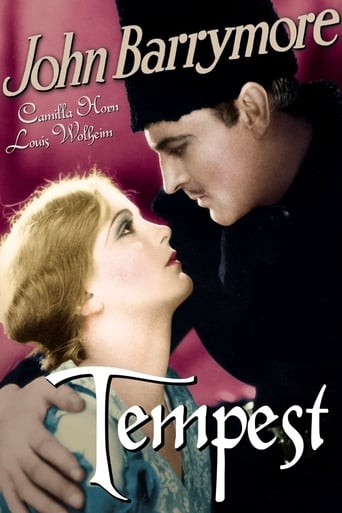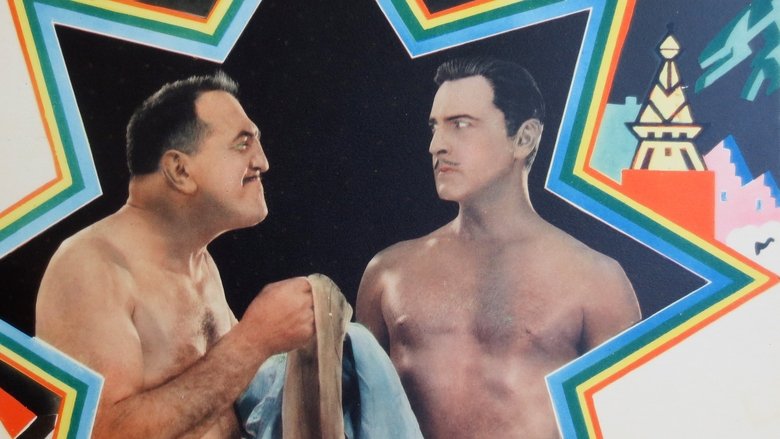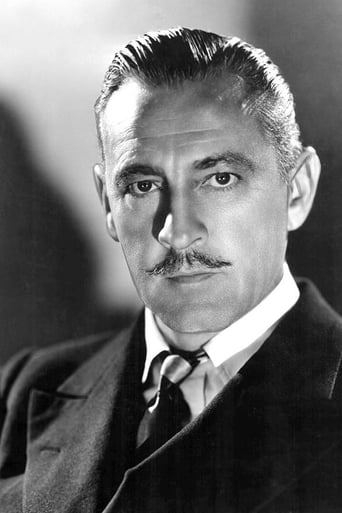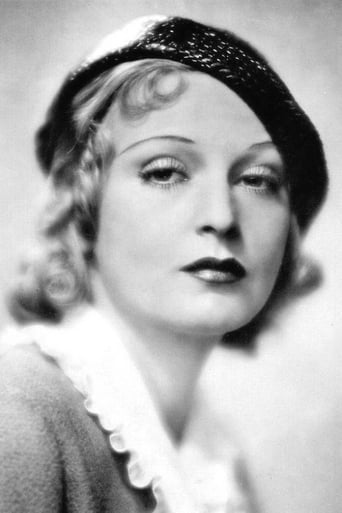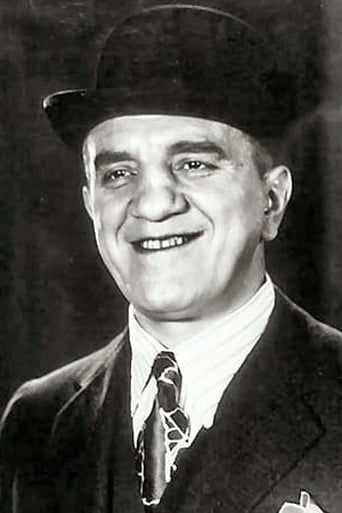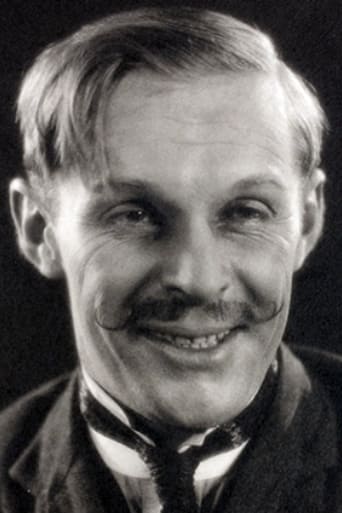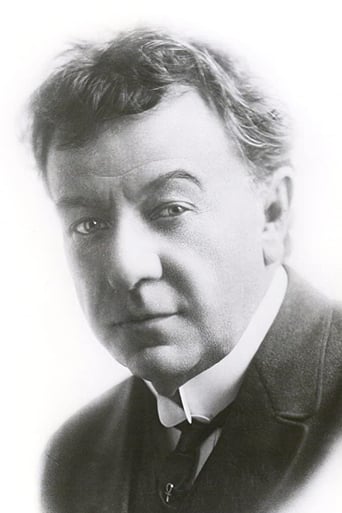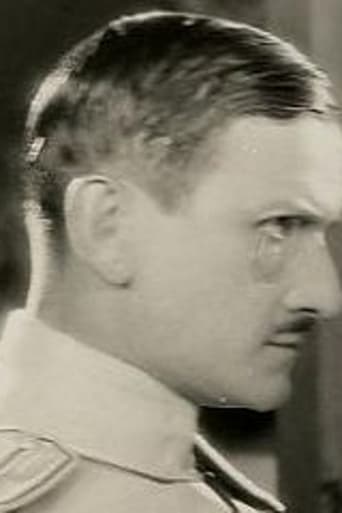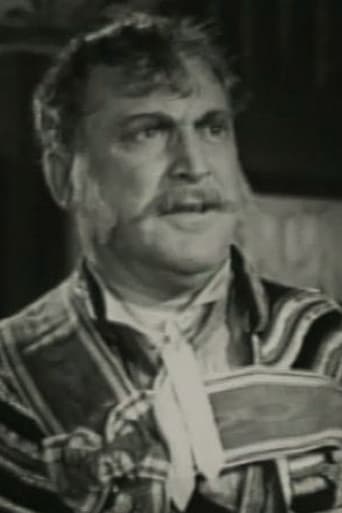In the final days of Czarist Russia, a peasant is raised from the ranks to Lieutenant. The other officers, aristocrats all, resent him, and make his life difficult. He falls in love with a princess, who spurns him. When he is caught in her room, he is stripped of his rank and thrown into prison. Then comes the Red Terror, and the tables are turned.


Reviews
Unfortunately, this is not John Barrymore starring in William Shakespeare's "The Tempest" - rather, "This is the storm-swept romance of a poor dragoon and a proud princess - of imperial Russia - in the last calm before the red tempest of terror. The year is 1914. The hour is midnight. The place is Volinsk - a garrison town near the Austrian border," as introduced in helpful title cards."'Tempest' was completed at the end of the silent era, and its release was delayed until it could be equipped with recorded musical accompaniment on Vitaphone discs. Seven of the discs have survived and are synchronized here; the gaps are filled by re-editing the available sound. A new digital stereo score performed by pianist Philip Carli is the primary soundtrack," according to the "Image Entertainment" DVD sleeve, "Our digital transfer is from a print made in the early 1950s from the camera negative." Mr. Barrymore looks remarkable hale and hearty for an actor born in the early 1880s, showing off a still enviable physique in his shirtless scenes. He is often heavily made-up, and too obviously maneuvered into as many "Great Profile" photo opportunities as possible, but his performance as the upwardly mobile Russian peasant does not disappoint. Barrymore certainly delivers."Sam Taylor, who helmed some of Harold Lloyd's and Mary Pickford's most successful films, is the only credited director on 'Tempest'. However, in mid-production, Taylor replaced Russian-born Lewis Milestone, who in turn had taken over from Russian émigré director Victor Tourjansky," explains Image, "The original script by Erich von Stroheim was rewritten by Milestone and much modified by C. Gardner Sullivan, a reliable craftsman who received sole screen credit. Some original aspirations for authenticity survive in the contributions of several actual White Russian officers working as small-part players and technical advisers." The film greatest strength is the outstanding work by the United Artists assembled technical crew. Titles by George Marion Jr., art direction by William Cameron Menzies, and photography by Charles Rosher were all praised at Hollywood's first annual "Academy Awards" banquet. Marion was mentioned for his work on Colleen Moore's "Oh Kay!" Mr. Menzies won for "Tempest and "The Dove". And, Mr. Rosher was mentioned for the winning "Sunrise", Ms. Pickford's "My Best Girl" and "Tempest".Pretty princess Camilla Horn, who impressed in F.W. Murnau's "Faust" (1926), looks like she was producer (and then lover) Joseph M. Schenck's choice to take the Greta Garbo route to super-stardom. It doesn't work, herein, but neither is Ms. Horn a deterrent. Louis Wolheim and George Fawcett are marvelous as always. The Russian-born Boris de Fast makes an excellent impression as the gap-toothed socialist peddler. If the "Oscar" category for "Supporting Actor" had existed, Mr. Wolheim might have been noted, for some combination of acting effort; he appeared in no less than four films nominated during the eligibility year.******* Tempest (5/17/28) Sam Taylor ~ John Barrymore, Camilla Horn, Louis Wolheim, Boris de Fast
I can't wrap my mind around the fact that Barrymore was in his forties when he made this film. He looks fit and fantastic, the true matinée idol. This is due in no small part to Rosher's astounding photography. This is a crazy, obsessional soap that may turn some people off, but John B. has some beautiful, moving moments that give me goosebumps. He was clearly still able to give his all at this point, and he does so here. His tearful scenes are believable and so well done. Camilla Horn was stunning and looked great with him, but she's so wooden that it dulls the effect a bit. Still, she had a long career in Germany, so I guess she couldn't have been so bad. Ivan is one big grey area when it comes to morality, and Barrymore conveys that very well.I wish he could have pulled it together long enough to save his career and life from the self-parodying buffoonery that he sank into as he dissipated. He breaks my heart on many different levels.
'Tempest' gives John Barrymore plenty of chances to show his left profile. The plot -- utmost tosh, about a peasant cavalry officer obsessed with Princess Tamara during the Russian revolution -- doesn't stand up to analysis. Suffice it to say that this is one of those movies where a man keeps harassing a woman until she falls in love with him.As Tamara, the haughty White Russian princess, Camilla Horn makes a magnificent entrance on horseback, riding sidesaddle in a form-fitting outfit with gauntlet gloves. Barrymore acquits himself well with a ridiculous script. There's one painful scene in which Lieutenant Markov (Barrymore) sups large quantities of booze to show how manly he is. Knowing what alcohol did to Barrymore's life and career, I cringe when I see him drinking on the screen.Among the ridiculous elements is Boris de Fast as a gap-toothed Bolshevik whose ability to be conveniently present during all the plot twists (even surreptitiously entering a military stockade) borders on the supernatural. Ullrich Haupt, as Barrymore's villainous superior officer, is splendidly hissable in a role that seems tailored for Erich von Stroheim. Character actor Michael Mark plays one of the cavalry troopers: no dialogue, no business, but his distinctive facial structure calls attention to itself. Louis Wolheim supplies a bit too much comic relief as the bulbous and bull-like Bulba: I guess he must be Taurus Bulba. Wolheim plays a cavalry sergeant, but his immense bulk makes him implausible in the role; Wolheim is built more like an infantryman.By far, the greatest appeal of this movie is Charles Rosher's dazzling camera-work, supplemented by the usual brilliant production design of William Cameron Menzies. The opening scene is a travelling shot of a military garrison: the camera is clearly panning across models, but they're as exquisitely detailed as one of those miniature villages that used to be so popular in Britain. Eventually the camera turns round a corner to show men walking past full-scale buildings ... but the cut is so well done, it's nearly seamless. Elsewhere, there's a splendid subjective shot through the bottom of an upturned glass ... and a fine example of double-exposure as the delirious Barrymore, rotting in the stockade, envisions his comrades in battle.I was also impressed with the consistent use of dissolves whenever printed words, handwriting or inscriptions were shown on screen. As all the characters are Russian, we first see signs and captions written in Cyrillic, followed by a dissolve into English translations. (Compare this with 'The Last Command', made at a different studio this same year, in which a Russian telegram is shown on screen in English.) Just a couple of times in 'Tempest' the dissolve device is not used, and there's one bizarre shot in which a handwritten note reading 'Do not disturb' in English is posted on the same door as a sign reading 'Commissar' in Cyrillic. Still, I'm vastly impressed that the art department went to so much trouble.Although the script is rubbish -- and I'm dismayed that the Bolsheviks are depicted favourably -- Barrymore's role has an impressive amount of moral ambiguity. Lieutenant Markov is basically moral and ethical, but he becomes obsessed with Princess Tamara ... and his behaviour degenerates accordingly. The script (and Barrymore) could have taken an easier route by contriving to make all of Markov's reversals a matter of circumstances rather than down to Markov's personal flaws.Despite a howlingly implausible script, the visuals and the acting are so good in this film that I'll rate it 7 in 10.
TEMPEST (United Artists, 1928), presented by Joseph M. Schenck, directed by Sam Taylor, with uncredited work by Lewis Milestone, bears no relation to the William Shakespeare play, but is actually a military love story set against the background of the Russian Revolution in 1914. It stars the legendary "great profile" John Barrymore as Ivan Markov, a peasant soldier who becomes an officer in the Russian Army, after being told by his comrades that no peasant has been commissioned to a higher rank in years. After he and his officers take a swim in the lake with only their uniform trousers on, Sergeant Bubba (Louis Wolheim), Ivan's closest friend, who has encountered three young girls also bathing on the other side, as a practical joke, steals their clothing. After being told for what he has done, Ivan interferes in Bubba's meddling and takes the garments to return them to the ladies. As he is doing his good deed, Ivan is confronted by the Princess Tamara (Camilla Horn), who immediately accuses him of stealing the clothes. Quite upset, she suddenly takes Ivan's whip and beats his naked chest with it. In return, Ivan takes her into his arms and kisses her. Later that evening Ivan encounters Tamara once again at a social function, and learns that she is the daughter of his superior (George Fawcett), who loves Ivan like a son. Ivan and Tamara dance together, with Tamara doing nothing else but insulting him. Afterwards, Ivan then drowns out his sorrows by stocking up on wine in a huge drinking glass and gulping it all down at once. Now drunk, Ivan loses himself and accidentally stumbles upon Tamara's bedroom where he proceeds to fall asleep on her couch. After being discovered there, Tamara calls for her father and her suitor (Ullrich Haupt), which then puts an end to Ivan's military career as he is stripped of his uniform and sentenced to serve five years in prison. After the outbreak of the war, the calvary and the other prisoners are ordered to the front, which leaves Ivan behind in solitary confinement, as ordered by Tamara's suitor. Released by an insane communist peddler (Boris De Fas), Ivan joins forced with him to become an important official while Tamara and her father are no longer aristocrats in high social standing. Now that Ivan is in control, will he treat her as unjustly as he was misjudged by her? TEMPEST, which plays like a proposed project for Rudolph Valentino, who has since died in 1926, offers John Barrymore in one of his finer performances of the silent screen. Camilla Horn, a blonde beauty recently imported from Germany, makes her Hollywood movie debut in this production. Before returning to her native Germany, she was re-teamed one more time with John Barrymore in the silent drama, ETERNAL LOVE (United Artists, 1929).Presented in the supporting cast are Michael Visaroff, Lena Malena and Michael Marke. Louis Wolheim provides his usual comedic moments as Ivan's loyal friend, while Ullrich Haupt adds to his villainy as Tamara's jealous suitor. George Fawcett, the familiar face from numerous DW Griffith silents of long ago, gives his usual reliable performance as the Russian general who would later find himself facing a firing squad. And then there is not so well known Boris De Fas, menacing, sinister and gap-toothed who somewhat resembles John Barrymore's evil side of his other personality from his own version to the 1920 horror film, DR. JEKYLL AND MR. HYDE. This is his only known Hollywood screen role. TEMPEST, with the running time of 104 minutes, was originally released theatrically with a synchronized musical score by Hugo Riesenfeld. It became one of the twelve selected films to appear during the summer months on New York City's public television Channel 13's 1975 presentation of "The Silent Years" as hosted by Lillian Gish, accompanied by another excellent piano score by William Perry from the Paul Killian collection. Before its presentation, Gish talks about the beautiful photography by Charles Rosher as well as the lavish sets by William Cameron Menzies. Besides these fine assets, TEMPEST includes several fine dramatic moments by Barrymore: One in which Barrymore's Ivan becomes very teary-eyed as he is disgraced in front of his regiment, stripped of his uniform with his sword broken in half by a superior, and another in which Ivan, nearly going insane while being left in solitary confinement, surrounded by those high prison walls, only to look up on one of those walls and imagining the face of Tamara looking down at him, but as for John Barrymore's earlier drunken scene, for him that must have been a natural.Like many silent films distributed around 1928-29, TEMPEST has become underrated and forgotten due to lack of television or any other kind of revival over the years. It was distributed on video cassette in the 1980s through Blackhawk Video and Republic Home Video (Blackhawk's merger), accompanied by the William Perry piano score used for "The Silent Years" (1975). Distribution on DVD from Image Entertainment contains choices of underscoring: 1)Original 1928 orchestral score and 2) Piano accompaniment by Philip Carli. (***)
